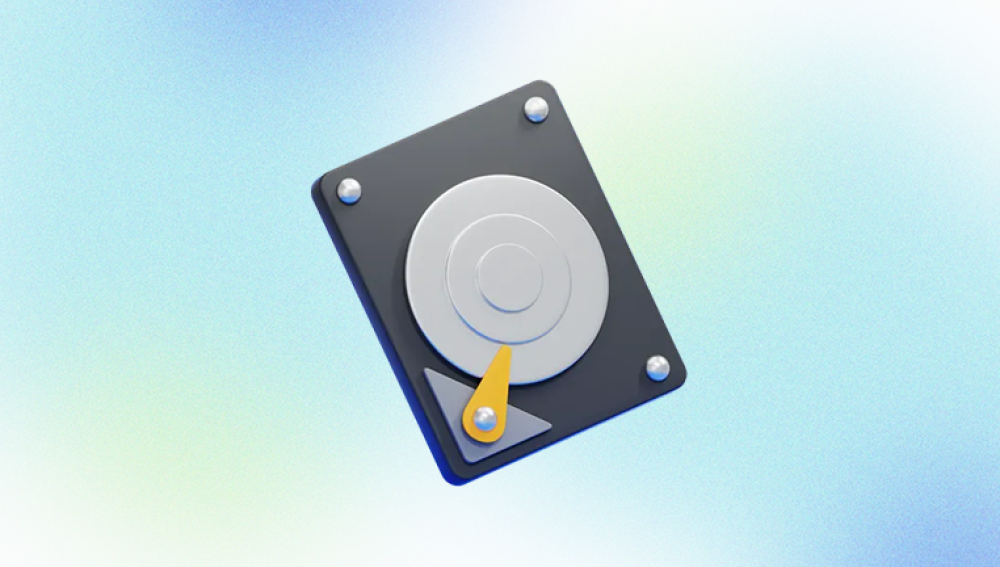Data is often considered the lifeblood of modern operations. For individuals, it could be precious family photos, personal documents like financial records, or important work-related files from freelancing gigs. For businesses, it can range from customer databases, accounting information, to intellectual property in the form of designs, research findings, and proprietary software code. Losing this data can have serious consequences, from emotional distress for individuals to significant financial losses and disruptions in business operations. Hence, when data loss occurs, many are willing to invest in data recovery services to retrieve their valuable information.
Factors Affecting Hard Disk Data Recovery Cost
Type of Hard Disk
There are different types of hard disks in the market, including traditional mechanical hard disk drives (HDDs) and solid-state drives (SSDs). HDDs are generally more complex internally with moving parts like spinning platters and read/write heads. Recovering data from a failed HDD can involve dealing with issues related to mechanical failures such as head crashes, motor failures, or problems with the spindle. On the other hand, SSDs use flash memory technology and have no moving parts. However, their data recovery process is different as it often involves dealing with complex firmware and controller issues. In general, data recovery from SSDs can sometimes be more expensive than from HDDs due to the specialized techniques and tools required and the relatively more complex nature of their internal architecture.

Cause of Data Loss
The reason behind the data loss significantly impacts the cost of recovery. For example, if data is accidentally deleted and has not been overwritten yet, software-based recovery tools might be able to retrieve it relatively easily and at a lower cost. In contrast, if the hard disk has suffered physical damage like being dropped, exposed to water, or having a component failure due to a power surge, the recovery process becomes much more complicated. Physical damage often requires opening the hard disk in a cleanroom environment (to prevent dust particles from further damaging the delicate internal components) and replacing damaged parts before attempting to recover the data. This kind of intricate process involving specialized equipment and skilled technicians can drive up the cost substantially.
Data Complexity and Volume
The complexity of the data itself and the amount of data to be recovered also play a role in determining the cost. Simple text files and basic document formats might be easier to recover compared to complex databases with multiple interlinked tables or encrypted files. If the data is encrypted and the encryption key is lost, additional steps will be needed to attempt to decrypt the data during the recovery process, which can increase the complexity and cost. Moreover, if a large volume of data, say several terabytes, needs to be recovered, it will take more time and resources, and thus the cost will be higher compared to recovering a few gigabytes of data.
Service Provider and Their Expertise
The choice of the data recovery service provider has a direct impact on the cost. There are various levels of service providers in the market, ranging from small local shops with basic recovery capabilities to large, specialized data recovery companies with state-of-the-art facilities and highly trained technicians. The more reputable and experienced service providers with advanced equipment and a proven track record usually charge higher fees. They invest in research and development to keep up with the latest data recovery techniques and maintain cleanroom facilities for handling physically damaged hard disks. In contrast, less experienced or less equipped providers may offer lower prices but might not be able to handle complex recovery cases effectively.
Time Sensitivity
In some situations, the urgency of recovering the data can affect the cost. For example, if a business has a critical system down and needs to get its data back immediately to resume operations, they may opt for an expedited data recovery service. Service providers often charge a premium for rush jobs as they may need to allocate additional resources or work overtime to meet the tight deadline. This additional cost for quick turnaround can significantly increase the overall data recovery expense.
Cost Breakdown and Estimation
Diagnostic Fees
Most data recovery services start with an initial diagnostic process to determine the cause of data loss and assess the feasibility of recovery. This usually involves connecting the hard disk to specialized diagnostic tools and having technicians analyze the situation. Diagnostic fees can range from a few tens of dollars to several hundred dollars, depending on the service provider and the complexity of the initial assessment. Some providers may waive the diagnostic fee if the customer decides to proceed with the actual recovery service.
Recovery Process Costs
The main part of the cost is associated with the actual data recovery process. As mentioned earlier, if it's a simple software-based recovery, the cost might be relatively low, perhaps starting from a few hundred dollars for basic cases. However, for more complex scenarios involving physical damage repair and intricate data retrieval from a severely damaged hard disk, the cost can skyrocket to several thousand dollars. On average, for a moderately complex hard disk data recovery case involving some hardware repair and a reasonable amount of data, the cost could fall in the range of $500 to $1500. But for extremely challenging cases with high data complexity and significant physical damage, it can easily exceed $2000 or even more.
Additional Costs
There can be additional costs depending on the specific circumstances. For example, if the recovered data needs to be transferred to a new storage device provided by the customer or purchased from the service provider, there will be costs associated with the storage medium. Also, if the customer requests data verification and backup services after recovery to ensure the integrity of the retrieved data, these services will come at an extra charge. In some cases, if the hard disk needs to be shipped to a specialized facility for recovery (especially if the local service provider doesn't have the required cleanroom or advanced equipment), shipping costs will also be added to the total expense.
Comparing Different Data Recovery Options
DIY Software Solutions
There are numerous DIY data recovery software tools available in the market, such as Recuva, EaseUS Data Recovery Wizard, and Disk Drill. These software programs can be relatively inexpensive, with some offering free versions with limited functionality or paid versions costing anywhere from $20 to $100 or more. They are suitable for simple cases of accidental deletion or file system corruption where the hard disk is still physically functional. However, they have limitations when it comes to complex physical damage or encrypted data recovery. For users who are tech-savvy and have a basic understanding of data recovery principles, DIY software can be a cost-effective option for less severe data loss scenarios.
Local Service Providers
Local computer repair shops or small data recovery businesses often offer data recovery services. They may have some basic recovery tools and technicians with general knowledge of hard disk repair and data retrieval. Their prices can vary widely but are generally on the lower end compared to large specialized companies. However, their capabilities might be limited when dealing with complex cases involving advanced hardware failures or sophisticated data encryption. They can be a good option for relatively straightforward data recovery needs within the local area and for those looking for a more budget-friendly solution.
Specialized Data Recovery Companies
These are companies that focus solely on data recovery and have extensive resources, including cleanroom facilities, advanced diagnostic and recovery tools, and highly trained technicians with expertise in handling a wide variety of hard disk issues. They can handle the most complex data recovery cases, from severe physical damage to intricate firmware problems. While their services come at a premium cost, they offer a higher success rate and more comprehensive guarantees for the recovered data. For businesses with critical data and individuals with valuable and irreplaceable information that requires the highest level of expertise, specialized data recovery companies are the preferred choice despite the higher price tag.
Tips for Managing Hard Disk Data Recovery Costs
Regular Backups
The most effective way to avoid high data recovery costs is to have regular backups of important data. By using external hard drives, cloud storage services like Dropbox, Google Drive, or OneDrive, users can ensure that even if their primary hard disk fails or data is lost, they can easily restore it from the backup. This preventive measure can save significant amounts of money that would otherwise be spent on data recovery services.
Understanding the Service Agreement
Before engaging a data recovery service provider, it's crucial to carefully read and understand the service agreement. This includes details about the cost structure, what is included in the service (such as diagnostic fees, recovery attempts, data transfer options), any guarantees or warranties on the recovered data, and the liability of the service provider in case the recovery is unsuccessful. By being clear on these aspects, users can avoid unexpected costs and disputes later.
Getting Multiple Quotes
It's advisable to obtain quotes from multiple data recovery service providers for a given data recovery case. Different providers may have different approaches and cost estimates based on their expertise and resources. By comparing several quotes, users can choose the option that offers a reasonable balance between cost and the likelihood of successful data recovery. However, it's important not to base the decision solely on price but also consider the reputation and experience of the provider.




